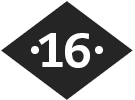

There are a few verbs that are conjugated in such a way that they resemble both regular and irregular verbs. Their conjugational forms are called mixed conjugations. The list of these verbs is not long. They are:
| brennen | burn |
| kennen | know, be acquainted |
| nennen | name, call |
| rennen | run |
| senden | send |
| wenden | turn |
Three other verbs also have a mixed conjugation but in a slightly different form.
| bringen | bring |
| denken | think |
| wissen | know |
Except for wissen, the present tense of these verbs is regular and follows the rules for the present tense conjugation. For example:
| kennen | nennen | senden | |
| ich | kenne | nenne | sende |
| du | kennst | nennst | sendest |
| er | kennt | nennt | sendet |
| wir | kennen | nennen | senden |
| ihr | kennt | nennt | sendet |
| Sie | kennen | nennen | senden |
| sie pl. | kennen | nennen | senden |
Wissen follows a present tense conjugational pattern similar to the modal auxiliaries, which differentiate between the singular pronouns and the plural pronouns.
| SINGULAR PRONOUNS | PLURAL PRONOUNS |
| ich weiß | wir wissen |
| du weißt | ihr wisst |
| er weiß | Sie wissen |
| sie (pl.) wissen |

Provide the present tense conjugation of each infinitive for the subjects provided.
| 1. brennen | 2. wenden |
| ich __________________ | ich __________________ |
| du __________________ | er __________________ |
| wir __________________ | niemand __________________ |
| man __________________ | die Frauen __________________ |
| 3. denken | 4. bringen |
| ihr __________________ | ihr __________________ |
| du __________________ | sie pl. __________________ |
| sie s. __________________ | alle __________________ |
| Sie __________________ | mein Freund__________________ |
| 5. wissen | 6. kennen |
| ich __________________ | ihr __________________ |
| er __________________ | sie s. __________________ |
| sie pl. __________________ | alle __________________ |
| ihr __________________ | du __________________ |
When verbs that have a mixed conjugation are conjugated in the past tense, they use the regular past tense suffix -te together with the endings appropriate for the various pronouns. In addition, they also make a vowel change like an irregular verb. The first- and third-person singular past tense of these verbs look like this:
| INFINITIVE | PAST TENSE |
| brennen | brannte |
| kennen | kannte |
| nennen | nannte |
| rennen | rannte |
| senden | sandte |
| wenden | wandte |
| bringen | brachte |
| denken | dachte |
| wissen | wusste |

Provide the past tense conjugation of each infinitive for the subjects provided.
| 1. nennen | 2. senden |
| ich__________________ | ich__________________ |
| du__________________ | er__________________ |
| wir__________________ | niemand__________________ |
| man__________________ | die Frauen__________________ |
| 3. denken | 4. bringen |
| ihr__________________ | ihr__________________ |
| du__________________ | sie pl.__________________ |
| sie s.__________________ | alle__________________ |
| Sie__________________ | mein Freund__________________ |
| 5. wissen | 6. kennen |
| ich__________________ | ihr__________________ |
| er__________________ | sie s.__________________ |
| sie pl.__________________ | alle |
| ihr__________________ | du__________________ |

If the sentence provided is in the present tense, reword it in the past tense. If it is in the past tense, reword it in the present tense.
When forming past participles with this category of verbs, the participles are formed with a ge-prefix and a -t suffix like regular verbs. But just as in the past tense, the past participles make a vowel change like irregular verbs. For example:
| INFINITIVE | PAST PARTICIPLE |
| brennen | gebrannt |
| kennen | gekannt |
| nennen | genannt |
| rennen | gerannt |
| senden | gesandt |
| wenden | gewandt |
| bringen | gebracht |
| denken | gedacht |
| wissen | gewusst |
Except for rennen, all the verbs that have a mixed conjugation use haben as their auxiliary in the perfect tenses. Because rennen is a verb of motion, it uses sein: ich bin gerannt, du bist gerannt, er ist gerannt, wir sind gerannt, ihr seid gerannt, sie sind gerannt.
When forming the future tense with werden, the pattern described in Chapter 13 is used: werden plus an infinitive: ich werde nennen, wir werden denken, and so on.

Reword each sentence in the missing tenses.
PAST
PRESENT PERFECT
FUTURE
PAST Er brachte mir die Zeitung.
PRESENT PERFECT
FUTURE
PAST
PRESENT PERFECT Sie ist viel schneller gerannt.
FUTURE
PAST
PRESENT PERFECT
FUTURE Wir werden uns an die Polizei wenden (contact the police).
PAST
PRESENT PERFECT
FUTURE
PAST Kannten Sie die Ausländer?
PRESENT PERFECT
FUTURE
PAST
PRESENT PERFECT Es hat im Stadtzentrum gebrannt.
FUTURE
PAST
PRESENT PERFECT
FUTURE Sie wird nicht mehr daran denken.
PAST
PRESENT PERFECT
FUTURE
PAST Onkel Peter sandte mir fünfzig Euro.
PRESENT PERFECT
FUTURE